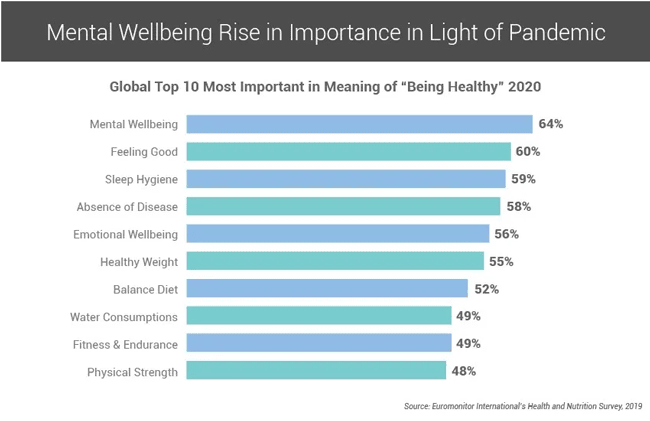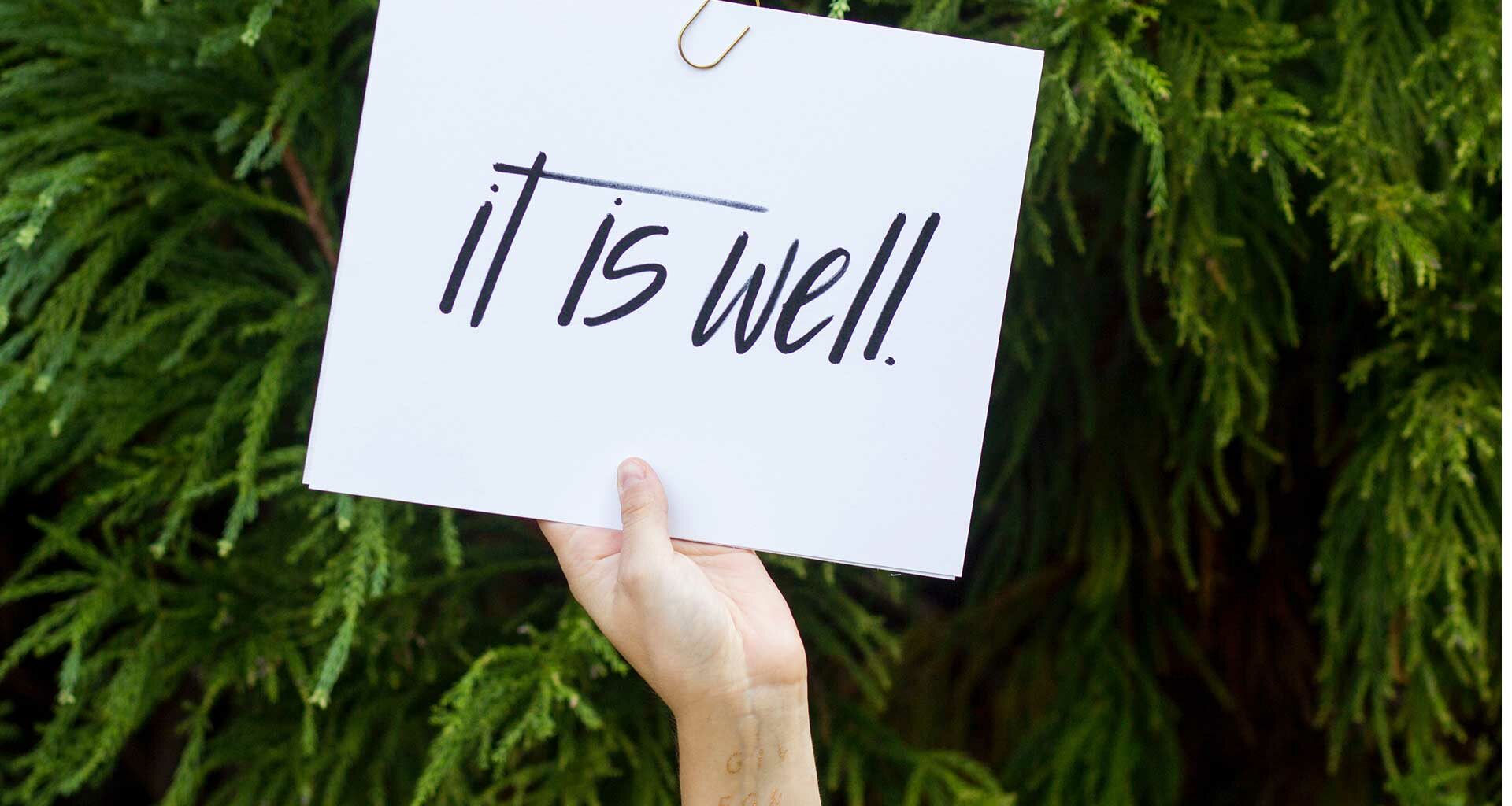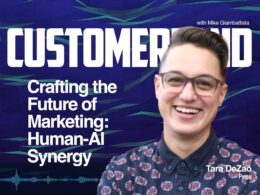I recently participated in a retail webinar on wellness. My main message was that retailers limit themselves if they think of customer wellness just in terms of products consumers use, wear close to their body, put on their skin or decorate their homes with.
By Pam Danziger
All retailers, nonessential and otherwise, have been massively disrupted during the nationwide coronavirus shutdowns. Upon reopening, if they ever do, retailers have an unprecedented opportunity to reevaluate and reassess every aspect of their businesses, not just how to reassure their staff and their customers are safe when they cross the threshold.
“The silver lining in this pandemic is that it brings a lot more focus on health and wellness,” says Beth McGroarty, director of research at the Global Wellness Institute (GWI).
“Post-pandemic behaviors will change just because people will have adopted new ways to survive, even thrive. It will be a radical check on our blatant consumerism. People have been forced to stop it, and they realize that it doesn’t matter. It doesn’t make them happier.”
Beth McGroarty, director research Global Wellness Institute
The store’s look, feel, arrangement, traffic flow, merchandising and marketing need to be adjusted for the new post-coronavirus reality. This requires a deep understanding of customers, how they feel and what they will want and need: This is true north for any retailer. Since the consumer has been profoundly changed by the coronavirus pandemic, retailers’ business must change accordingly.
Wellness to Wellbeing
Euromonitor reports that globally consumers spend $473 billion on health and wellness products, and that was before the pandemic. How much more will consumers spend afterwards?
Yet, wellness goes far beyond products on a shelf. The bigger retail opportunity is to elevate wellness into a wellbeing experience that consumers can sense and feel.
Every consumer ultimately seeks wellbeing, which has three interrelated and co-dependent dimensions: physical, emotional, and financial. Here are some ways retailers can lean into wellbeing beyond the entry-level strategy of stocking more wellness products.
Physical Wellbeing
Yes, retailers want to respond to customer needs for ranges of wellness and sustainable products. But think of expanding the wellness concept into the store environment.
Staying healthy and well has always been a priority for consumers, but it’s now become priority number-one. Before venturing into a store, customers want to see visible signs that their health is a priority. It means more than just facemasks and hand sanitizer on the counter, but prominent evidence that the wellbeing of customers and staff come first.
Mary Liz Curtin, owner of Clausen, MI’s Leon and Lulu home furnishings, gift, and fashion lifestyle store, took the coronavirus downtime to paint the walls and make everything fresh inside. “When we reopen, we are all going to have to look fabulous,” Curtin says. “We don’t want the store to look like it came through World War III.”
Fashion retailers and department stores face a special challenge because these retailers get up close and personal with their customers; none more so than fashion retailer Suitsupply. Its hallmark is personal fittings, tailoring and customization that depends on hands-on contact between the sales staff and the customers.
“Innovation is born out of necessity,” says the company’s CEO and founder Fokke de Jong who operates 140 stores worldwide, including 44 in the U.S. “We faced an immediate challenge to return to normalcy. How can you get measured, fitted and pinned in a suit from six feet away?”

Emotional Wellbeing
Happiness is an emotional state, and while being healthy is a first critical step toward happiness, it is only part of the journey. “Mental and emotional wellness has been the biggest trend in the wellness space before coronavirus and it will become even more important after,” GWI’s McGroarty says, as she expects more people to suffer post-traumatic-stress levels of anxiety and fear caused by the threat to health and extended social isolation.
“The crisis of social isolation and loneliness is one of the biggest health threats to the world,” she says. “And it is getting worse since the digital age, especially among young people with growing rates of suicide and anxiety. Social connections are the number-one determinant of happiness because of a strong sense of community and connections with real people and trust in a society’s institutions,” McGroarty continues.
“The ultimate survival strategy right now is just to be there and help in whatever way you can,” says Leon & Lulu’s Curtin. She offers by-appointment shopping experiences to her clients individually or in small groups.
Suitsupply offers a similar private shopping experience. Working remotely on their computers, tablets or phones, customers select items to have set aside freshly steamed and pressed in a dressing room ready when they come in. This personal shopping service has been a boon to both the staff and the customers, who value the personal service. And it has an added benefit: it saves time when limiting the number of people in the store is required.
Community-centric retail starts with building strong and lasting personal connections within the local community, such as being active in local business groups and supporting local charities and causes. The Covid-19 health crisis has hit seniors and first-line workers in local communities hard. Retailers can play a supportive role to help.
For example, each of the 4,500 True Value hardware stores are locally owned and operated under the corporate tagline “Locally Strong.” Leigh Ann Akard, a third-generation owner of Zionsville, IN’s Akard True Value Hardware store, sets an example of what locally strong retail means.
Her store is a center for the local Lions Club’s eyeglass program, books for a literacy group, food for a local charity food bank, and a drop off/pick-up location for Sew to Serve kits. Her store also provides products and services to support firefighters and local EMTs.
“It’s easy to say yes,” she explains, and adds, “As an independent local retailer, we have to adjust our sails to catch the wind.”
And through it all, successful retailers will work to ensure marketing messages are sensitive, empathetic, authentic and emotionally intelligent. And staff members will emulate the marketing message on the sales floor and phone.
Humor helps lift everybody’s spirits. During the shutdown, Curtin took to video to keep her personal connection with her Leon & Lulu community. She is a poster child for communicating honestly and with charming humor.
Financial Wellbeing
With U.S. unemployment at levels not seen since the Depression, consumers are not just anxious about their health but also their financial security. While the ultra-affluent elites may feel their financial status is immune from the coronavirus, nobody else does — not even white-collar professionals.
The AP reports that layoffs and pay cuts are starting to impact well-paid professionals at law, accounting and consulting firms, in healthcare, marketing and administration — even professionals working in technology and scientific fields, like architecture and engineering.
Sensitivity to customers’ financial situations means offering brands that deliver the maximum value at the lowest possible price. That doesn’t mean going cheaper for the sake of being cheaper but making sure that every product in the store delivers extra value to the customer.
For example, if a retailer carries products that are priced 20 to 25 percent above average in the competitive market, the products should deliver comparable or even greater value.
Think: products that deliver more value for less money.
Wellbeing Brings New Opportunities
The Global Wellness Institute defines wellness as “the active pursuit of activities, choices, and lifestyles that lead to a state of holistic health.” It distinguishes wellness not as a “static state of being (i.e., being happy, in good health, or a state of wellbeing), but rather the active process of being aware and making choices that lead toward an outcome of optimal holistic health and wellbeing.”
It further stresses that individuals are responsible for their own choices, behaviors and lifestyles, which are significantly influenced by “the physical, social, and cultural environments in which we live.”
Our personal environments have been radically altered by the coronavirus pandemic. Retailers in all nonessential, discretionary categories are now pondering how their consumers’ values and lifestyles will change as a result of the forced reset they have experienced.
On a positive note, Chris Gray, Psy.D., founder of consumer psychology consultancy Buycology and one of the early pioneers in the shopper psychology field with Saachi & Saachi, says new opportunities will emerge for retailers if they take a long-term view.
“The items people purchase provide a sense of possibility and freedom to dream. When you are in the middle of a crisis, it is hard to dream,” he says. “People are focused on day-to-day versus being able to think about how life may be better in the future. This opens another opportunity for brands to be able to provide people with that sense of aspiration and possibility.”
But that sense of aspiration and possibility needs to align with consumers’ new drive toward wellbeing across the dimensions of health, emotion and finance. Retailers must reset to their customers’ emerging concern within the broader context of wellbeing, as they pursue their own post-coronavirus journey for business wellbeing.
About Pam Danziger: Pamela N. Danziger is an internationally recognized expert specializing in consumer insights for marketers targeting the affluent consumer segment. She is president of Unity Marketing, a boutique marketing consulting firm she founded in 1992 where she leads with research to provide brands with actionable insights into the minds of their most profitable customers.
She is also a founding partner in Retail Rescue, a firm that provides retailers with advice, mentoring and support in Marketing, Management, Merchandising, Operations, Service and Selling.
A prolific writers, she is the author of eight books including Shops that POP! 7 Steps to Extraordinary Retail Success, written about and for independent retailers. She is a contributor to The Robin Report and Forbes.com. Pam is frequently called on to share new insights with audiences and business leaders all over the world. Contact her at [email protected].
This article originally appeared in The Robin Report. Photo by Corinne Kutz on Unsplash.











